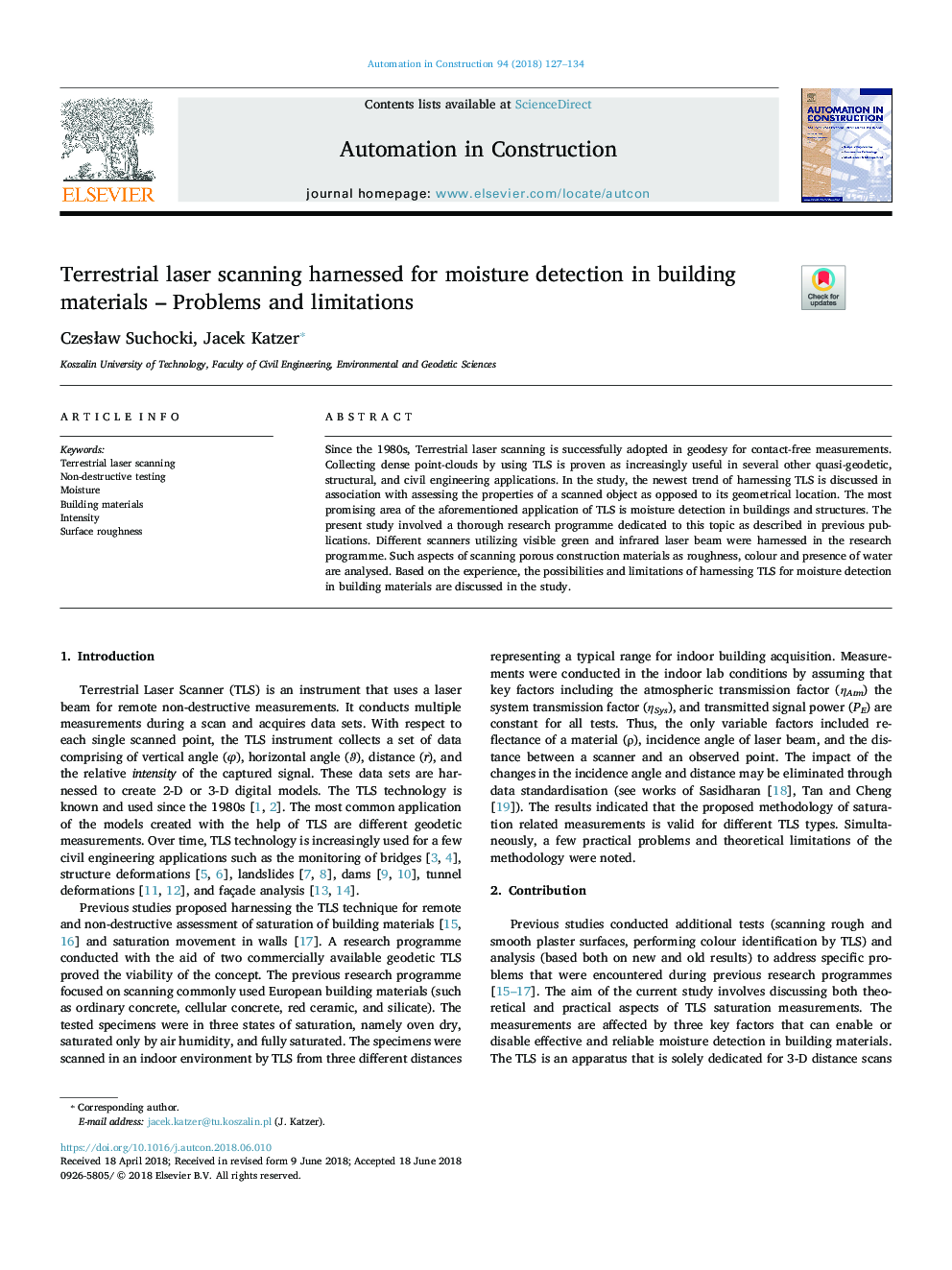| Article ID | Journal | Published Year | Pages | File Type |
|---|---|---|---|---|
| 6695236 | Automation in Construction | 2018 | 8 Pages |
Abstract
Since the 1980s, Terrestrial laser scanning is successfully adopted in geodesy for contact-free measurements. Collecting dense point-clouds by using TLS is proven as increasingly useful in several other quasi-geodetic, structural, and civil engineering applications. In the study, the newest trend of harnessing TLS is discussed in association with assessing the properties of a scanned object as opposed to its geometrical location. The most promising area of the aforementioned application of TLS is moisture detection in buildings and structures. The present study involved a thorough research programme dedicated to this topic as described in previous publications. Different scanners utilizing visible green and infrared laser beam were harnessed in the research programme. Such aspects of scanning porous construction materials as roughness, colour and presence of water are analysed. Based on the experience, the possibilities and limitations of harnessing TLS for moisture detection in building materials are discussed in the study.
Keywords
Related Topics
Physical Sciences and Engineering
Engineering
Civil and Structural Engineering
Authors
CzesÅaw Suchocki, Jacek Katzer,
